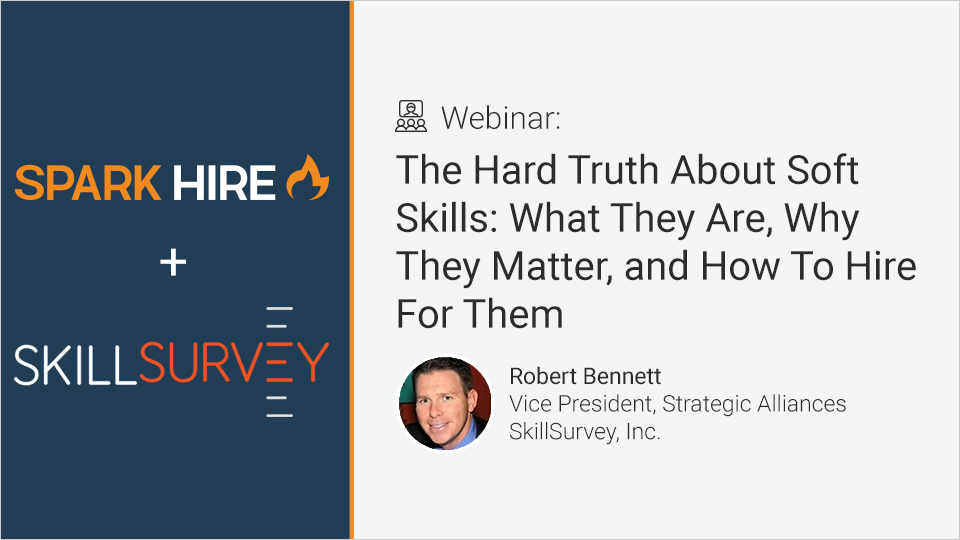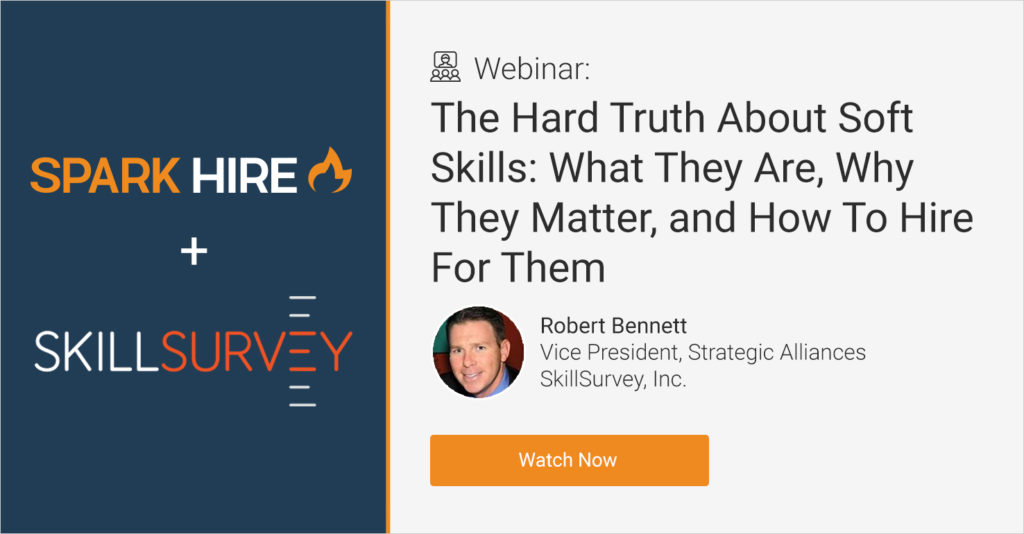The workplace is more demanding, more complex, more collaborative, and more diverse than it has ever been before. Finding candidates who will excel in this environment means finding people with the right balance of hard and soft skills.
So, here is the hard truth about soft skills:
The difference between hard skills and soft skills and why soft skills matter
Many hiring and staffing professionals know that hard skills are easy to identify. Soft skills on the other hand can take a little more effort to uncover. When you’re interviewing candidates, it is important to imagine where they will fit in your organization. Will they work well with the other members of their team, are they comfortable sharing their opinions, can they stay calm under tight deadlines. These are all important skills that you can and should uncover using personality interview questions.
How soft skills differ across the generations
There has been a lot of speculation about how each generation fits into today’s workforce. We have Baby Boomers preparing to retire, Generation X is starting to reach the peak of their career and Millennials have started to take the workforce by storm. However, with so many different generations working together, it’s worth understanding each generation’s strengths and weaknesses when it comes to soft skills.
Ways to leverage soft skills for organizational and job fit
While hard skills are important for many positions, in most cases, soft skills simply cannot be taught through on the job training. When you’re interviewing a candidate, having the ability to assess each person by how well they will excel in your workforce should be a vital part of your interview process. Solving this missing piece of your hiring puzzle can prove to be a game changing move for your entire organization.
How behavioral-based interviewing and online reference checking can help you find the best candidates
As most experienced hiring and recruiting professionals know, past behaviour is the best predictor of future behaviour, more often than not. This is usually accomplished by asking very thoughtful and calculated interview questions. How your candidate responds will usually tell you everything you need to know. Further, many teams have found that adding an online reference checking solution has helped them find the best candidates.
By interviewing for not only hard skills, but also soft skills, you gain valuable insights on your candidates.
Rob Bennett has more than 17 years of professional experience, primarily focused on human capital management consulting. He provides best practices focusing on finding, developing and retaining employees, while aligning corporate objectives with talent management strategies.
Watch this webinar recording for more tips and uncover strategies on ways to include soft skills as a part of your organizational culture and make finding top talent a cinch!












